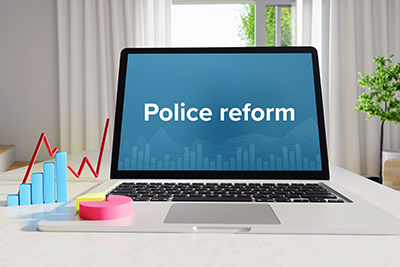6 steps to real, enduring police reform
Posted on January 28, 2021
 Tim Burgess is a former Seattle City Council member and interim mayor.
Tim Burgess is a former Seattle City Council member and interim mayor.
In its reckless rush to slash the police budget, the Seattle City Council has forced out Chief Carmen Best — the city’s first Black female police chief — and created unnecessary risks to public health and safety.
The council’s decisions have been hasty and ill-advised — no consultation with Best, no checking-in with the federal judge overseeing the police department’s reform efforts, no discussion with the court’s monitor, no counsel from national police-reform experts, no due diligence to discover that by slashing Best’s salary they were making the head of the city’s largest department the second lowest paid department leader. This is careless governance, no matter how you look at it.
Tragically, the council’s actions could undermine the very communities who are justifiably demanding changes in policing by causing under-policing where crime is concentrated, thereby incurring the wrath of residents who want to be safe in their homes, neighborhoods and places of work. And the council’s actions risk further, irreversible alienation of the very police officers absolutely essential to true reform and effective, unbiased policing the people of Seattle deserve.
So, City Council, stop the rush to defund the police. Instead, take the time to work with Mayor Jenny Durkan, national police-reform experts, and a cross section of Seattle residents to develop a specific plan of action that addresses the inequities, lack of trust and police violence we have witnessed, a plan that simultaneously increases the effectiveness of our police in protecting our city. Base this plan on the science of policing, what actually works to prevent crime, and, while you’re at it, address the upstream, root causes of crime — poverty, persistent education inequities and poor economic opportunity, to name a few. If this planning groundwork is done right, the council will find that we can have a city with less crime and less punishment, along with police services keenly responsive to community expectations.
Here are some ideas to ponder for the plan.
Last year, Seattle’s 911 center received just over 800,000 calls for service. Police officers were dispatched to only about one-third of these calls. They could have been dispatched even less frequently if alternative resources — such as unarmed Community Service Officers — had been readily available. City government should beef up qualified, ready-to-go response alternatives. But we will find that these alternatives can’t be established quickly, nor can they replace a significant number of officers despite the council’s stated intent to lay off hundreds of them.
The “law of crime concentration” is important because it should be the basis for police-safety efforts. Multiple studies, including here in Seattle, have shown that crime is concentrated at relatively small micro places, so-called “hot spots.” About one-half of all reported crime in Seattle occurs on just 5% of our city blocks. This crime is anchored at these micro places; it rarely moves. Why? Because criminal offenders seek places where the opportunity to get away with crime is best; “hot spots” qualify over and over. Whole neighborhoods aren’t inundated with crime, but specific micro places in neighborhoods can be.
Effective policing adopts focused deterrence strategies for the places and people causing the most harm, especially crimes of violence and those targeting our most vulnerable residents — children, the elderly, the disabled, and those with addiction or mental-health challenges. Police should identify those micro places where crime is occurring most and the people responsible, then work with the natural guardians in those places — residents, shop owners, workers, clergy, community leaders — to develop effective interventions. The people living and working in these places deserve to be safe, free from persistent crime and the disorder it creates.
Frankly, the most effective crime prevention work doesn’t come from the police. It comes from neighbors who know each other and have a shared sense of community norms, purpose and trust. Social scientists call it collective efficacy — people who act for the common good. They report a burned-out streetlight. They help clean up trash and overgrown vegetation. They confront the shop owner who sells alcohol, marijuana or cigarettes to minors. They volunteer in youth programs. They get organized.
Areas of high-crime concentration almost always have low collective efficacy. Let’s plan to deploy social workers and others trained in collective efficacy-building skills to work with residents in a partnership designed to prevent crime from occurring in the first place. There is an excellent example of this already working in Seattle. Begun several years ago, the Rainier Beach Beautiful Safe Place for Youth project has been effective in reducing crime, making “hot spots” less hot and building the collective efficacy of the broader neighborhood. Another example not yet active in Seattle is the grassroots work of the National Network for Safe Communities aimed at reducing violent crime.
Those calling for community-based alternatives to traditional policing are right; these efforts should be greatly expanded because when successful they reduce the need for police interventions.
Who our police officers are, and how they are held accountable, is crucial to boosting public confidence and trust. If we want deep transformation — true culture change — of law enforcement, we need to make some bold changes.
● Let’s follow the science of brain development that has conclusively established that adults aren’t fully capable of independent, objective decision-making until they reach age 25. This same science has established that those under 25 are less capable of resisting peer pressure and overcoming problematic organizational norms — key capabilities police officers must have. Raise the minimum age for new officers to 25 instead of 21.
● Let’s follow the evidence showing that officers with a college degree use force less often and demonstrate greater levels of creativity and problem solving. Follow the counsel of experienced police officers and require a college education, not just a high school diploma. Give financial incentives to current officers to encourage them to gain higher levels of education.
● Let’s change the current system of police promotions — a multiple-choice test and interview. Base promotions instead on demonstrated leadership skills, specific education achievements and a performance history unblemished by misconduct.
● Let’s set police accountability and discipline standards in state law, not individually negotiated by police unions city-by-city, which results in a patchwork of rules and procedures. These standards and practices should not be set by what can be “won” through collective bargaining. Consistency and high standards should be the goal; the nature of policing and the authority we grant officers demand nothing less.
● Let’s repeal the state law that gives police officers special appeal rights after they have been disciplined, allowing for delay, secrecy and a lack of true accountability. Today, officers have a choice of two appeal paths after they are disciplined for misconduct — a public appeal to the Public Safety Civil Service commission or a private appeal to an arbitrator where citizen confidence is destroyed by secrecy. Police officers should have the same discipline-appeal rights as all other public employees, not special rights that create secrecy and undermine public confidence.
● At the same time, let’s fix the appeal process so it can’t drag on for years. Seattle has 86 police discipline appeals pending, some from as far back as 2016, all but one in private arbitration. Some of these cases involve the misuse of deadly force. This is not a system that builds public confidence.
These steps, along with others, can transform how we police, building on the changes already implemented in our police department, changes that have made it a national model of reform. Yet there’s more to do; let’s do it with careful planning and an openness to innovation, science and expertise.
Rushing to slash the police budget won’t achieve the effective transformation we all seek, may actually cause harm and will certainly not garner the essential support of the people of Seattle or our police officers.
SEE ALSO:
More Race Relations Articles
Sexual Bias Articles
Mental Health Articles
How Drugs and Alcohol Affect the Brain and Body
WA. Counselor Directory: find a therapist near you
How helpful is this web page to you?
(and how can we can improve this page for you?)
not helpful
very helpful
Other Articles
I am a Black Police Officer. Here is How to Change the System.
Yes, defund the police. But then re-fund them, better.
NEWPORT NEWS, Va. — When I entered the police force in Virginia in 1987, I was one of the few Black officers in my department. On my first day on patrol, I was paired with an experienced white officer.... read more
Improve policing--change police hiring system
In America, relations between police and the communities they serve are strained to the breaking point. Everyone from police officers to community groups to government entities are all doing their best to co... read more
The police have long been a reliable source for some
But it is time to reexamine that trust
I can’t stop thinking about Manuel Ellis. I keep wondering if it weren’t for the global uprising for racial justice in the wake of George Floyd’s killing by Minneapolis police, whether... read more
What Seattle-area cops say about the future of policing
The Future of Policing: As protesters across the country demand sweeping changes to law enforcement, The Seattle Times begins an examination of what that future could look like and the hurdles ahead. Today,... read more




